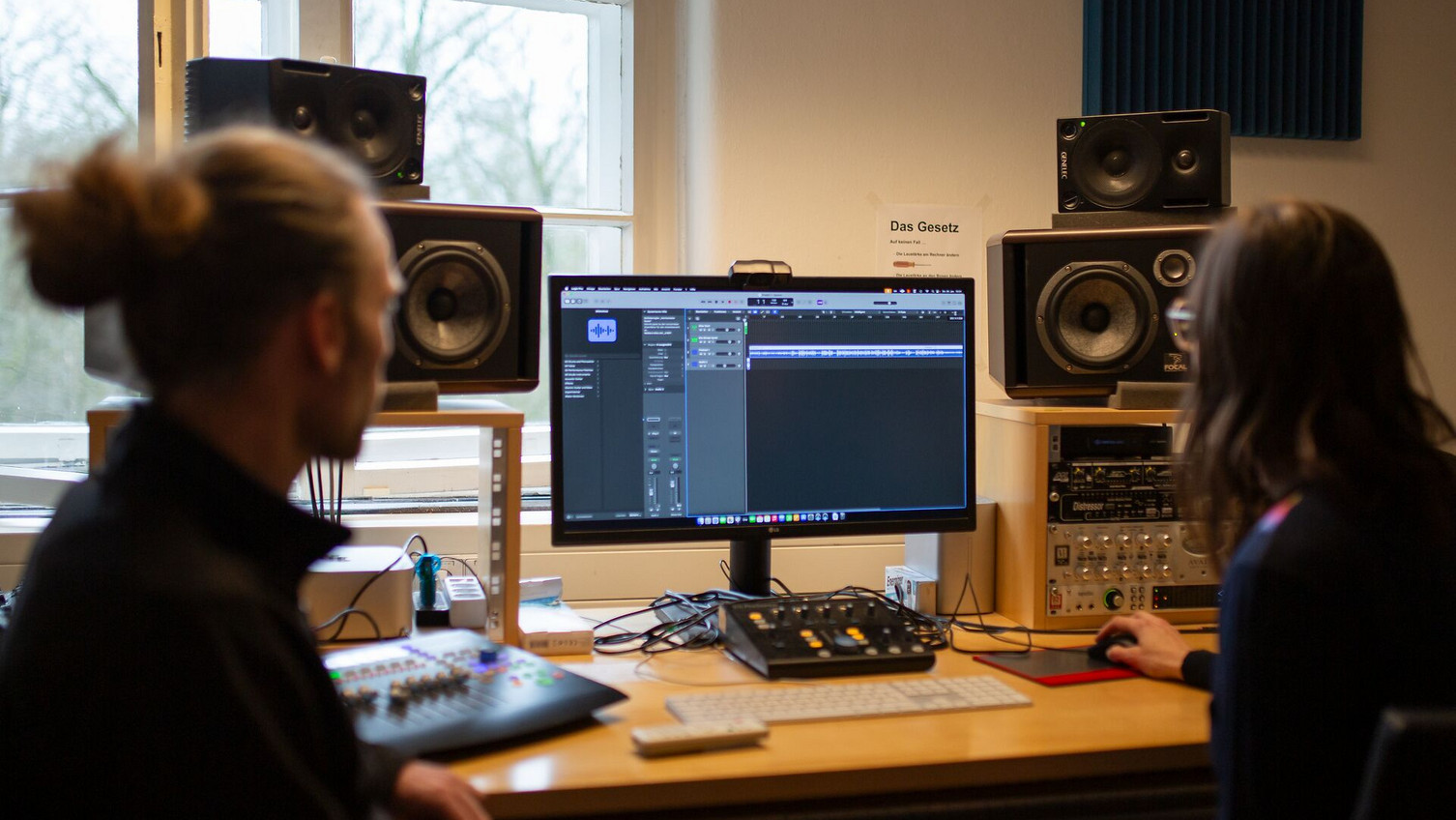Making the Past Unforgettable: Memory Lab Podcast on Bergen-Belsen
2025-02-12 As part of the research project "Musical and Sonic Memory Spaces in the Post-Witness Era," Thomas Köhn and Prof. Dr. Monika Schoop from the IKMV explore the roles of music and sound in remembering the Nazi era. Within a seminar on this topic, students developed, produced, and recorded a podcast, now available on Spotify.
How can the era of National Socialism be remembered? This question is becoming ever more pressing, as there will soon be no contemporary witnesses left to report on the Holocaust and National Socialism. At the same time, right-wing extremist and revisionist tendencies are on the rise. "Music and sound offer particular potential here, which has scarcely been explored to date. That is precisely where we come in," says Thomas Köhn. "On the one hand, we aim to determine the role that music and sound already play in commemoration—for example, the voices of contemporary witnesses in video interviews, the music at memorial events, or the soundtracks of historical films shown in exhibitions. On the other hand, we ask how sonic elements might be deliberately used in the future to make memory more emotionally tangible, to encourage engagement with history, and to raise awareness of the issue of right-wing extremism."
In the interdisciplinary seminar "Memory Lab Bergen-Belsen," participants explored the memorial site with historian Katja Seybold, engaging with the complex history of this historical location. The research focused on archival work and the analysis of historical documents, particularly regarding music. "Music has so far received relatively little attention in research on Bergen-Belsen," Schoop explains, "despite its diverse functions. In the concentration camp, for example, communal singing was an identity-forming practice for prisoners; it gave them strength and served as an expression of resistance. At the same time, music was also instrumentalised by the Nazis. It is documented that musicians from the Girls' Orchestra of Auschwitz were deported to Bergen-Belsen and forced to play for the camp administration. Here, music was a form of forced labour."
After the war, the former concentration camp was used by the Allies as a displaced persons camp. "Music played a central role in this context," Schoop explains. "It helped people reconnect with the pre-war era, process their experiences in the camps, and keep memories alive. A focus on music also reveals that survivors were by no means a homogeneous group. For instance, the visit of violinist Yehudi Menuhin and composer Benjamin Britten to Bergen-Belsen provoked controversial reactions, as the two predominantly performed pieces by German composers. Many had expected Menuhin, himself Jewish, to include more Jewish music in the programme."
"Engaging with Bergen-Belsen holds particular significance for us as residents of Lüneburg," says Schoop. "This is due, on the one hand, to geographical proximity: The memorial site is just an hour's drive away in the district of Celle. However, there are further connections: Immediately after the war, the first trial on war crimes committed in Bergen-Belsen was held in Lüneburg. Moreover, the Bergen-Belsen concentration camp had originally been constructed as a barracks in 1935—almost simultaneously with the barracks in Lüneburg, which today form the university campus."
From these scholarly explorations of music in Bergen-Belsen, four podcast episodes emerged, examining the role of music in the concentration camp, the displaced persons camp, and in commemorative culture.
The latest episodes of the "Memory Lab" podcast have been released on Spotify and Apple Podcasts.

